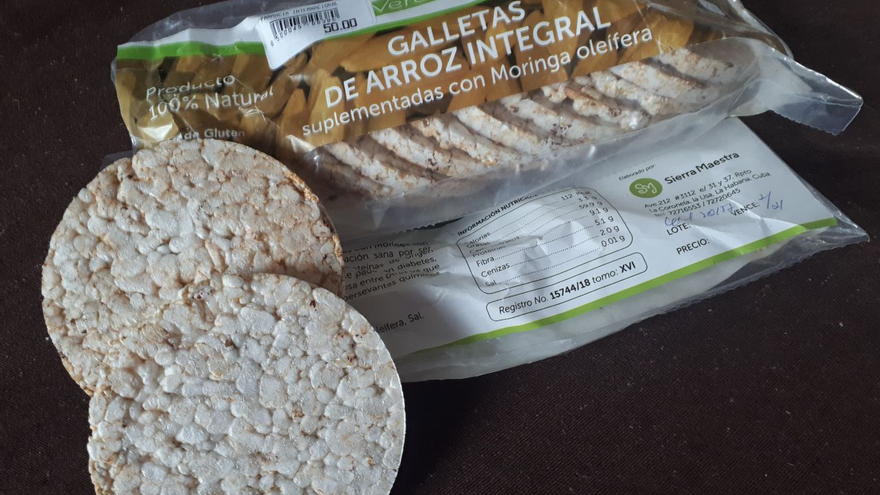
![]() 14ymedio, Natalaia López Moya, Havana, 16 October 2021– The cultivation and consumption of moringa, one of the last projects promoted by Fidel Castro, would seem like a distant story for many Cubans, if it were not for some products that are still marketed in Cuban pharmacies. Pills, tea and puffed rice cakes made with the leaves of this tree, native to India, are the few vestiges that remain of that plan that made headlines a decade ago.
14ymedio, Natalaia López Moya, Havana, 16 October 2021– The cultivation and consumption of moringa, one of the last projects promoted by Fidel Castro, would seem like a distant story for many Cubans, if it were not for some products that are still marketed in Cuban pharmacies. Pills, tea and puffed rice cakes made with the leaves of this tree, native to India, are the few vestiges that remain of that plan that made headlines a decade ago.
At Carlos III y Soledad pharmacy in Havana, a bag with dried moringa-filled pills is sold as a nutritional supplement despite the fact that the label leaves very little clarification on the benefits of the product. “They are in high demand and when it comes in they are sold out the same day,” explains an employee to 14ymedio. The woman details that “most of the people who buy it, take it with the aim of maintaining or losing weight.”
That end is far from the wonders that Castro promoted nine years ago in one of his reflections, the writings that he continued to publish in the official press after retiring from public life due to an intestinal problem. “Inexhaustible sources of meat, eggs and milk, silk fibers that are spun by hand and are capable of providing well-paid, shadow work, regardless of age or sex,” he said then of the moringa plants.
However, with the death of the dictator, little by little the planting and commercialization of the derivatives of this plant have been losing prominence. On the main street of Guanabo, one of the most important beaches in eastern Havana, the counter of the once well-stocked international pharmacy has on display only a few products and some puffed rice cakes with moringa.
Due to the national crisis, all the stores around are empty of merchandise or with very long lines to buy frozen chicken or ground meat. Hence, some visitors staying in nearby private homes venture to buy the cakes. “They are not bad, although a little dry because the employee says that they have been there for a long time and do not sell very well,” explains a visitor to this newspaper.
“I bought them for breakfast because in all of Guanabo we have not found neither bread nor normal rice cakes for when we get up, to be able to put something in our mouths,” she details. The label reads that they are produced in the Sierra Maestra Science, Technology and Innovation Entity, in Siboney, one of the most exclusive neighborhoods in the city. A local worker, speaking by telephone, says that “now they are not being produced and when we have they are also sold at subsidized prices to employees, but not many buy them.”
The most popular derivatives of the plant are still “moringa packages that cost 21 pesos and that people use for an infusion,” explains a neighbor close to the Carlos III pharmacy. “They tell me that people even use it to add to their meals and to dress salads. I, who am addicted to herbal teas, bought a package to try it and it is not bad. The truth is that when it appears on sale it is gone immediately,” he confirms.
“Not even the production of moringa, of which they spoke so much, has been able to meet the amounts promised,” laments another resident in the area. “When they tell me that they put the tea on sale, by the time I left my house and arrived, it was over. This is already like beef: scarce and you can only get with contacts.”
____________
COLLABORATE WITH OUR WORK: The 14ymedio team is committed to practicing serious journalism that reflects Cuba’s reality in all its depth. Thank you for joining us on this long journey. We invite you to continue supporting us by becoming a member of 14ymedio now. Together we can continue transforming journalism in Cuba.
